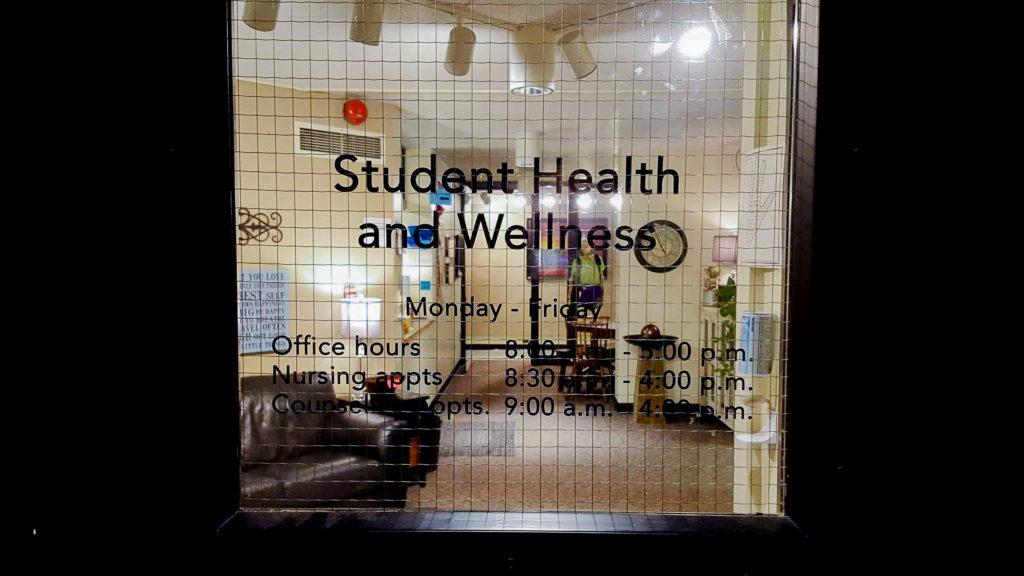By Seth Taylor
taylorse@grinnell.edu
Faced with increasing demand for counseling, Student Health and Wellness (SHAW) is straining their resources to get students what they need–and they’re not always succeeding. It’s a situation in stark contrast to how the College markets their counseling services to prospective students, according to some Grinnellians.
Henry Brannan ’21, who was unable to get regular counseling this semester as he has in previous semesters, expressed frustration with this situation in a post on Grinnell Thumbs Down. The post has since been reacted to 135 times and received 66 comments.
“[The current situation is] a pretty fundamental violation of what the College promises students. … It would be one thing if the services weren’t promised … but they’re very explicit that we have these services, we provide these services—and then they don’t,” Brannan told The S&B.
Brannan added that the situation is not the fault of SHAW staff. Still, SHAW is aware of student concerns.
“We’re aware of the limited resources and the feeling that creates for students, and we find that unfortunate. We want to be able to offer everything we possibly can,” said SHAW’s Counseling Director, Charles Bermingham.
Bermingham noted that Grinnell is one of many schools experiencing a sea change in the utilization of mental health resources.
“Initially, the struggle for health and mental health was around reducing stigma to get people to come in the door … so the majority of me is happy about the fact that we have so many students accessing services. … Now we need to figure out how to establish and expand what we’re offering,” Bermingham said.
After counselor Thomas Zigo’s departure at the end of last year, SHAW was left with two full-time counselors, one part-time counselor and four graduate students from the University of Iowa who hold part-time positions at SHAW.
Students and SHAW seem to agree that it’s not enough.
Already, one-on-one counseling options for students are full for the rest of this semester, leaving students to either find a counselor in the community (and pay for their services) or choose not to pursue individual counseling.
“[That decision] creates this environment where students who have more access to money can see somebody, and students who don’t, can’t,” said Brannan.
Personally, Brannan has made the decision that outside counseling is not financially feasible for him.
Moe Sabai ’20 has worked with the same counselor since her second year. After taking a medical leave, Sabai returned to Grinnell and continued working with the counselor, who has been “tremendous,” in the spring and summer.
This fall, however, after missing her first appointment, Sabai was unable to see her regular counselor until fall break.
“I was pretty much on my own for the first few months,” Sabai said.
Sabai has tried both outside counseling and group therapy, but she determined neither were the right fit for her. She is hopeful that she can continue working with her regular counselor for the rest of the semester.
There are options for students outside of individual counseling, such as group therapy and the Need-To-Talk line available to students 24/7, among other things, and to compensate for this semester’s lack of staff SHAW has worked creatively to open up opportunities for service; Let’s Talk, a drop-in consultation service for students who have specific concerns, is new this semester, and SHAW has also introduced an updated version of drop-in appointments.
There are a minimum of two drop-in appointments available to students beginning every morning, filled on a first-come-first-served basis, with more added as counselors’ schedules allow. However, counselors’ schedules rarely open up. Bermingham has also introduced group therapy to Grinnell, steadily increasing its use over the last few years.
He is “passionate” about group therapy and describes it as an “advanced form.” SHAW currently hosts three therapy groups, and while there is still one group accepting new members, Bermingham said it is likely SHAW will soon have to close that group as well.
Bermingham acknowledges that group therapy is used in part to compensate for demand, but he is adamant that it’s valuable as a unique form of therapy by itself. Deb Shill, the Director of Shaw, agrees. “It’s a way for the counseling team to meet the demand … but it’s also a really great form of therapy,” she said.
However, both Shill and Bermingham stress that group therapy is not replacing individual counseling and that group therapy is not right for everyone. For his part, Brannan says he would be uncomfortable sharing his experiences in a group setting. Sabai did try group therapy, but she found it difficult to relate with others in her group.
Looking ahead, Shill and Bermingham are optimistic that they can increase SHAW’s capacity for mental health care, especially as they prepare to make the move from The Forum to Mears Cottage (tentatively scheduled for the fall of 2021), but they also acknowledge that fighting for their budget priorities can be difficult.
“We don’t get to make those decisions here at SHAW. We can advocate for that and share our perspective about what we feel is needed, but we don’t get to make those big decisions,” said Shill.
While both Shill and Bermingham said they feel their requests are received with “open ears,” Bermingham also said it can be difficult to convey the need they see to those making budget decisions.
“We’re a confidential resource … so when we’re trying to advocate we can only share so much. … That’s where I think there can be a disconnect. … The budget constraints are real and when you can only present so much information it makes it difficult to advocate,” he said.
“There has been a tremendous amount of funding put towards our services,” said Shill. “I just don’t think we’re quite there yet.”


























































